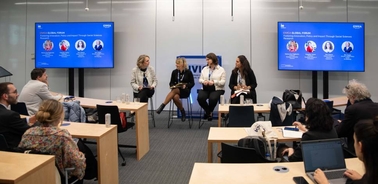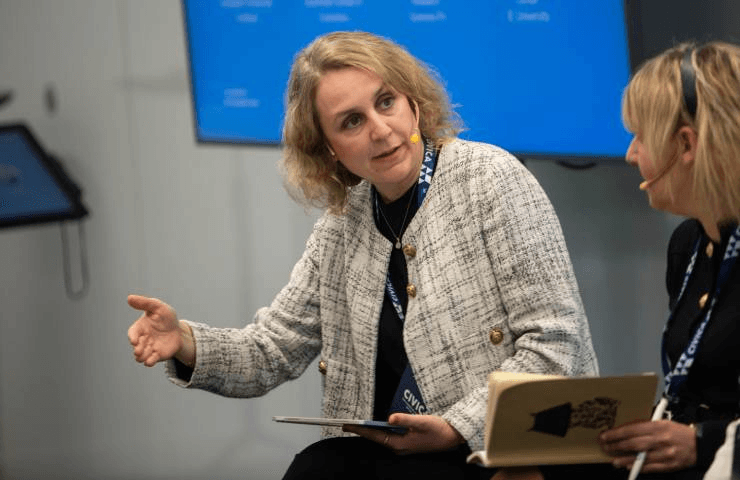- Home
- Civica
- Civica News
- Ie University’s Global Policy Center Advocates For Bringing Academia And Policy Closer Together At The Civica Global Forum
IE University’s Global Policy Center advocates for bringing academia and policy closer together at the CIVICA Global Forum

The Global Policy Center delved into how social sciences can turn academic research into practical policy solutions at CIVICA Global Forum, a landmark event titled “Leveraging Social Sciences in Higher Education: Navigating Global Challenges and Complexities”.
Ilke Toygur, Director of the IE University’s Global Policy Center, moderated a thematic breakout session at the CIVICA Global Forum to examine how social sciences can contribute to policy and societal transformation. The forum was held on May 6–7 at IE Tower, IE University’s vertical campus in Madrid. IE University, together with the other nine European universities in the CIVICA alliance, The European University of Social Sciences — confirmed that it is a key player in shaping higher education and the future of Europe through international collaboration and critical thinking.
The CIVICA Global Forum gathered 450 participants, coming from industry, government, civil society and academia, to tackle global challenges. These included the climate change crisis, changing geopolitical trends and emerging technologies, under the theme "Leveraging Social Sciences in Higher Education: Navigating Global Challenges and Complexities".
Ilke Toygur moderated the session “Fostering Innovation, Policy and Impact Through Social Sciences Research”. Speakers of the session included Marina Cino Pagliarello, Professor at the European University Institute; Valentina Tartari, Professor at the Stockholm School of Economics; and Dina Waked, Dean of the School of Research at Sciences Po. The discussion focused on the role of social sciences in contributing to policy and societal change.
Social sciences strengthen democracy against challenges like polarization, inequality and institutional fragmentation by providing a trust-based, bottom-up approach, they explained. It is difficult to measure the impact social sciences research, they are not quantitative in nature like STEM disciplines are. Yet, they are key in fostering social innovation and engaged citizens. To achieve these long-term societal dynamics, universities embody vectors for change.
Speakers emphasized that institutional incentives hardly ever reward policy engagement, making the gap between academia and policy making persistent. They pushed for providing more incentives, which can take the form of evaluation systems, career structures and remuneration models, and underscored the relevance of interdisciplinary abilities and innovative communication methods to translate research into action.
Moreover, participants stressed how important it is to recognize diverse knowledge systems. Avoiding the imposition of Western-centric frameworks allows for the co-production of knowledge, rather than unidirectional transfer, which is essential for equitable and inclusive policies. Policies’ “simplicity” is in tension with the complexity of research. Policymakers seek clear and actionable solutions, for which scholars can grant a more thorough approach to actionable solutions and become increasingly responsive to the pressures of the policy world.
Finally, they discussed how innovation can be addressed from policy terms. Framing can define innovation as progress, development, growth or progress. Speakers concluded that, regardless of the framing, public service must be the basis for innovation, which must advance collective problem-solving. As Ilke Toygur remarked, “We are made of what our dreams are made of”, highlighting the importance of thinking big and envisioning innovation as a driver of meaningful societal progress.
